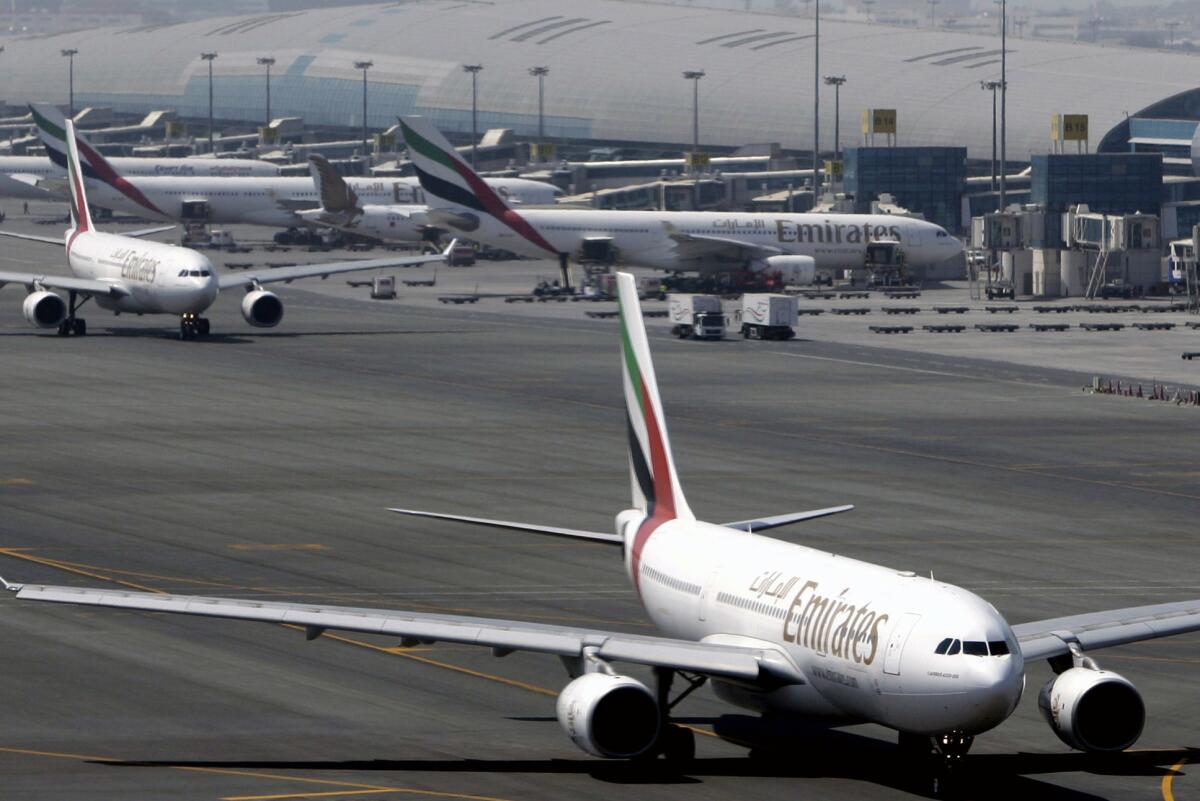Competition from Middle Eastern carriers may mean lower fares to Europe, Middle East

Emirates jets taxi on the tarmac at Dubai International Airport in the United Arab Emirates. Travel experts say competition from Middle Eastern carriers may lead to lower fares to Europe and the Middle East.
- Share via
An ongoing airline feud continued to boil last week over whether three Middle East-based airlines have accepted billions of dollars in subsidies from their oil-rich governments to unfairly compete against U.S. carriers.
Emirates Airlines released a report rejecting the accusation made by American, United and Delta airlines, and fired back with the charge that the three big U.S. carriers have themselves benefited from $100 billion in government support since 2002.
The U.S. carriers have asked the Obama administration to investigate whether Emirates, Qatar Airways and Etihad Airways have violated a so-called open skies agreement that allows foreign carriers access to U.S. markets.
But the feud has yet to address the effect on U.S. travelers.
Travel experts say that competition from the Middle East airlines can mean better deals and more options for U.S. travelers, particularly vacationers heading to Europe and the Middle East.
“If we have more competition, we will get lower fares,” said Rick Seaney, founder of the travel comparison website Farecompare.com.
Emirates, for example, is offering nonstop round-trip flights from New York to Milan, Italy, next month for a few dollars less than American and Delta.
The competition may generate good deals in the short term, but supporters of the U.S. airlines say the supposed unfair advantage of the Middle Eastern carriers could eventually choke out competition and lead to higher fares.
“Competition is welcome, but not when you are competing on an unlevel playing field,” said Sara Nelson, international president of the Assn. of Flight Attendants, which represents about 60,000 flight attendants in the U.S.
To read more about travel, tourism and the airline industry, follow me on Twitter at @hugomartin.
More to Read
Inside the business of entertainment
The Wide Shot brings you news, analysis and insights on everything from streaming wars to production — and what it all means for the future.
You may occasionally receive promotional content from the Los Angeles Times.











